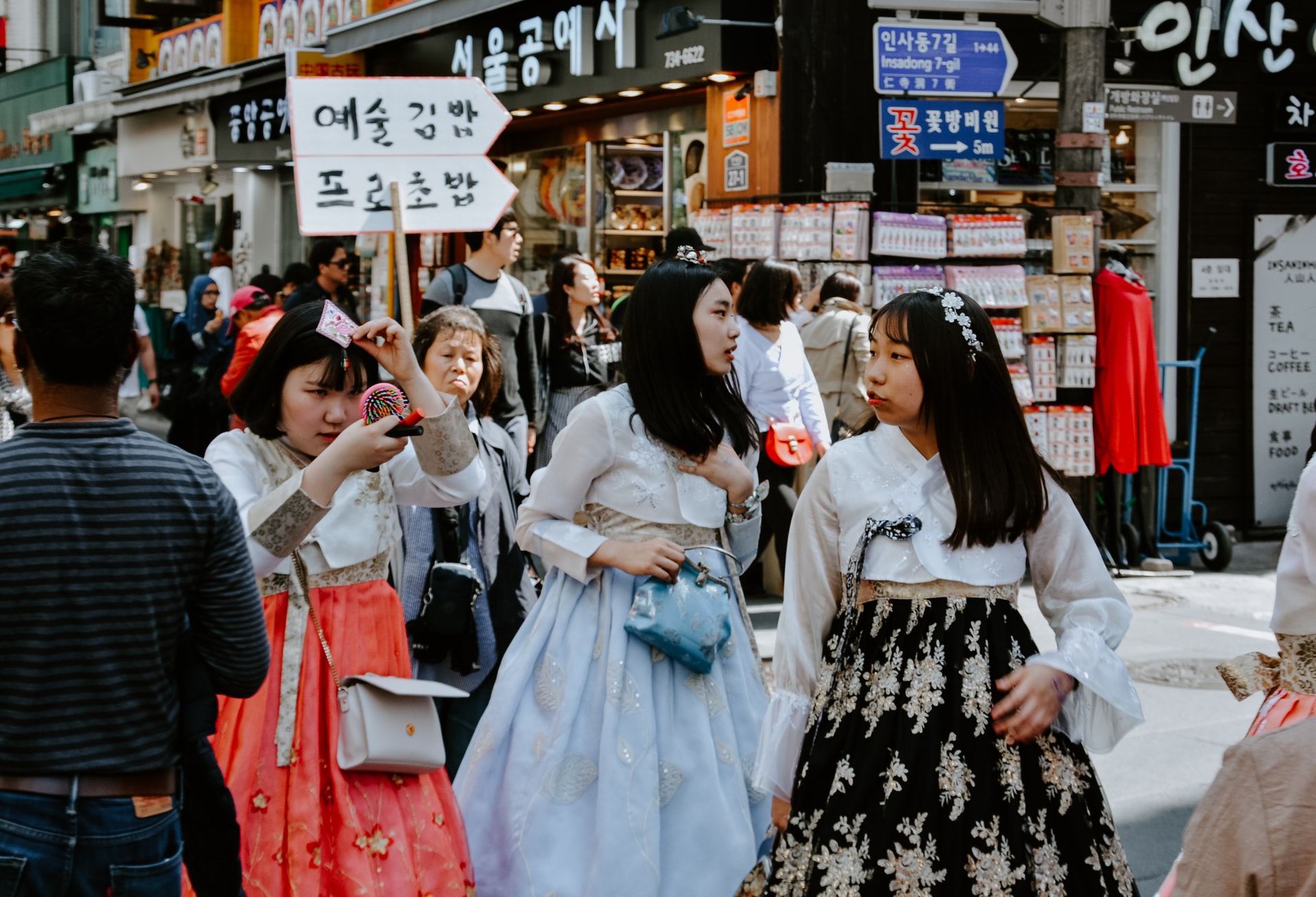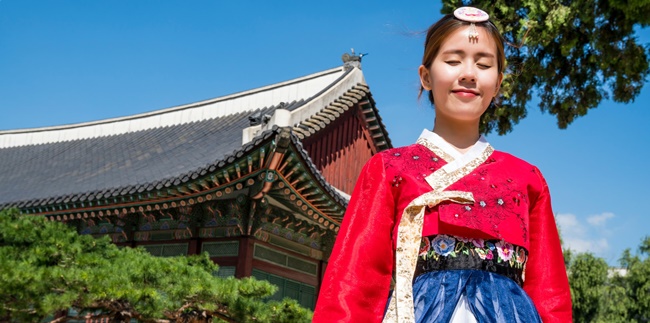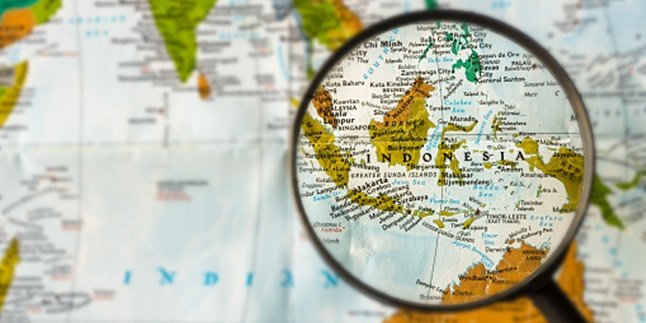Kapanlagi.com - Korean dramas have successfully captured the attention of the public with their romantic, cool, and visually stunning shows. Moreover, there are several popular vocabulary from Korean dramas that sound very familiar. One of them is the word annyeong, which is often used as a daily greeting.
In Indonesia, Korean language is no longer unfamiliar. You may often encounter Korean vocabulary on social media or in conversations among Korean drama fans.
Among the many popular Korean drama vocabulary, the word annyeong is often encountered. If you're a fan of Korean dramas, it doesn't hurt to know what annyeong means.
That's why below is an explanation of the meaning of annyeong and other popular vocabulary. Let's check out the explanation of the meaning of annyeong that has been compiled by kapanlagi.com from various sources.
1. Meaning of Annyeong in Korean Language

(credit: unsplash.com)
Fans of Korean dramas or drakor are certainly familiar with the vocabulary annyeong.This vocabulary is commonly used in everyday conversations as a way to greet or say hello.
If you are a drakor lover, you surely need to know the meaning of annyeong in Korean language.The meaning of annyeong in Korean language is hello or hey.Actually, the meaning of annyeong is an informal greeting.The meaning of annyeong can also mean goodbye, farewell, parting, or well-being.
Yes, in Korean language there are several levels.According to lister.co.id, among the levels of Korean language are the most polite ones usually used when communicating with high officials, presidents, kings or queens.
There is also a polite formal level that can be used if your interlocutor is someone new or a foreigner.Then, the casual polite level is usually used by foreigners for other foreigners who are older, peers, co-workers, even younger or Koreans. There is also a middle level which is not too formal or informal.Usually, the use of Korean language is used without degrading oneself.
The next level is informal or information, usually used if the interlocutor is younger or a peer.While the lowest level is informal but polite enough, usually used for people who are already close or to children.And casual informal is used for peers who are already familiar and communicating with children.That is the meaning of annyeong in Korean language and a brief explanation of the levels of Korean language.
2. Usage of the Word Annyeong

(credit: unsplash.com)
When watching Korean dramas, you may have come across a scene where the main character says annyeong to their close friend. That is an example of using the word annyeong. The meaning of annyeong is informal hello or hey, which is why it is used as a greeting for younger people or close friends.
Meanwhile, the meaning of annyeong can also be used to greet someone in the morning, afternoon, evening, or night. The use of annyeong in Korean language can be adjusted according to the situation and condition.
That is why the use of the word annyeong usually shows someone's closeness to a friend or colleague. So they use the word annyeong which is an informal greeting vocabulary. Meanwhile, there are several other uses of the word annyeong that you can adjust to the situation and condition. The use of the word annyeong can be seen below, not just the meaning of annyeong.
1. Annyeong haseyo: The meaning of annyeong haseyo is hello but it tends to be more polite. Usually, this vocabulary is used for foreigners that you have not yet met. It can also be used if your conversation partner is older, higher in position than you, or a colleague.
2. Annyeong hashimnikka: The meaning of annyeong hashimnikka is hello but it tends to be very formal. The use of this vocabulary can show respect and reverence towards your conversation partner. You can use this vocabulary to greet someone you respect.
3. Annyeonghi Gaseyo: The meaning of annyeonghi gaseyo is a formal or polite goodbye. Where this vocabulary is used when your close friend is about to leave or has just returned.
3. Popular Vocabulary in Korean Language

(credit: unsplash.com)
Meanwhile, there are several popular vocabulary in Korean that need to be known. Among the popular vocabulary in Korean, they are quite often found in drakor. That's why if you're a drakor fan, you must know what popular vocabulary in Korean below.
1.Hymne: Meaning spirit.
2.Hwaiting: Meaning spirit.
3.Daebak: Meaning amazed, impressed, surprised.
4.Saranghae: Meaning I love you.
5. Gaja: Meaning let's go.
6.Gwenchana: Meaning I'm okay.
7.Aigo: Meaning oh my goodness.
8.Kiyowo: Meaning cute or pretty.
9.Kyeopta: Meaning cute, pretty, or adorable.
10.Jinjja: Meaning serious, really, or really?
11.Mianhamnida: Meaning sorry.
12. Chotha: Meaning good.
13.Cheongmalimnikka?: Meaning really?
14.Gwiyeowo: Meaning cute or adorable.
15.Sillyehammida: Meaning excuse me.
16.Neo reul bogosipheo: Meaning I miss you.
17.Kamsahamnida: Meaning thank you.
18.Arasseoyo: Meaning I understand.
19. Arasseumnida: Meaning I already know.
20.Arayo: Meaning I know.
21.Keojitmal hajimara!: Meaning Don't lie!
22.Ne: Meaning yes or okay.
23.Eomeona!: Meaning oh my gosh!
24.Siksahapsida: Meaning let's eat.
25.Maeumi aphayo: Meaning heartbroken.
26. Yeoboseyo: Meaning Hello.
27.Cheonmaneyo: Meaning You're welcome.
28.Saram sallyeo!: Meaning Help!
29.Saengsin chukhahamnida: Meaning Happy birthday.
30.Hajima!: Meaning Don't do it!
31.Keojitmal: Meaning Lie.
32.Jal jayo: Meaning Good night.
33. Doragada: Meaning Come back.
34.Aniyo: Meaning No.
35.Olaenmaniya: Meaning Long time no see.
36.Eoseo oshipshiyo: Meaning Welcome.
37.Jal jinaemnida: Meaning I'm fine.
38.Baegopeuda: Meaning I'm hungry.
39.Dasi bwayo: Meaning See you again.
40. Jal jinaeseyo: Meaning Have fun.
41.Mannso ban gapseumnida: Meaning Nice to meet you.
Those are some explanations of the meaning of annyeong that you need to know. So you won't be confused anymore when you encounter this word in Korean dramas or social media.
(kpl/gen/nlw)
Disclaimer: This translation from Bahasa Indonesia to English has been generated by Artificial Intelligence.















